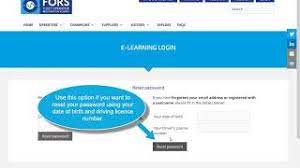
The Future of E-Learning: Embracing a New Era of Education
In recent years, the landscape of education has undergone a significant transformation with the rise of e-learning. As technology continues to advance at a rapid pace, traditional classroom settings are no longer the sole means of acquiring knowledge. E-learning, or electronic learning, has emerged as a powerful tool that offers flexibility, accessibility, and innovation in education.
Breaking Boundaries with E-Learning
One of the key advantages of e-learning is its ability to break down geographical barriers. Students no longer need to be physically present in a classroom to participate in learning activities. With just a computer and an internet connection, individuals from around the world can access educational resources and engage in virtual classrooms.
Personalised Learning Experience
E-learning platforms are designed to cater to individual learning styles and paces. Through interactive modules, videos, quizzes, and other multimedia tools, students can customise their learning experience to suit their preferences. This personalised approach not only enhances engagement but also improves retention and understanding of the material.
Cost-Effective and Sustainable
Compared to traditional classroom-based learning, e-learning offers a cost-effective solution for both learners and educational institutions. By eliminating the need for physical infrastructure and printed materials, e-learning reduces expenses associated with traditional teaching methods. Additionally, e-learning is environmentally friendly as it minimises paper usage and carbon emissions from commuting.
Continuous Learning Opportunities
E-learning encourages lifelong learning by providing continuous access to new information and skills. Whether it’s professional development courses, language tutorials or academic programmes, e-learning offers individuals the opportunity to upskill and stay relevant in today’s fast-paced world.
The Role of Technology in E-Learning
Technological advancements such as artificial intelligence (AI), virtual reality (VR), and augmented reality (AR) are revolutionising the e-learning experience. AI-powered chatbots provide instant assistance to learners, VR simulations offer immersive training environments, and AR applications enhance interactive learning activities.
Embracing the Future
As we move towards an increasingly digital world, embracing e-learning is not just an option but a necessity. The future of education lies in leveraging technology to create engaging, accessible, and effective learning experiences for all. By embracing e-learning, we open doors to endless possibilities in education and empower individuals to reach their full potential.
Understanding FORS eLearning: Key FAQs Answered
- What is FORS eLearning?
- What is FORS good for?
- What are the FORS levels?
- How long does FORS certificate last?
What is FORS eLearning?
FORS eLearning is an innovative online platform that offers a wide range of interactive courses and resources designed to enhance knowledge and skills in the field of fleet management and road safety. Through engaging modules, quizzes, videos, and assessments, FORS eLearning provides a flexible and accessible learning experience for individuals looking to improve their understanding of best practices in the industry. Whether you are a novice seeking foundational knowledge or an experienced professional aiming to stay updated with the latest trends, FORS eLearning caters to diverse learning needs with its comprehensive and user-friendly approach.
What is FORS good for?
FORS, or Fleet Operator Recognition Scheme, is highly beneficial for organisations involved in fleet management and transportation. This accreditation scheme aims to promote best practices in safety, efficiency, and environmental responsibility within the logistics industry. FORS provides a structured framework for companies to improve their operations through training, assessment, and certification. By adhering to FORS standards, businesses can enhance their fleet performance, reduce risks on the road, lower fuel consumption, and demonstrate their commitment to sustainable transport practices. Overall, FORS plays a crucial role in elevating industry standards and promoting excellence in fleet management.
What are the FORS levels?
The FORS levels, short for Fleet Operator Recognition Scheme levels, represent a set of accreditation levels designed to improve fleet operations and vehicle safety standards. There are four main FORS levels – Bronze, Silver, Gold, and the recently introduced Gold ‘Progression’. Each level signifies a progressive commitment to enhancing fleet management practices, promoting road safety, reducing environmental impact, and achieving operational efficiency. Fleet operators can work towards attaining higher FORS levels by meeting specific criteria related to driver training, vehicle maintenance, fuel efficiency, and overall best practices in fleet management. By understanding and striving to achieve the FORS levels, organisations can demonstrate their dedication to upholding industry standards and prioritising safety and sustainability in their operations.
How long does FORS certificate last?
When it comes to FORS e-learning, a common question that arises is, “How long does a FORS certificate last?” The validity of a FORS certificate typically varies depending on the specific course or training programme completed. In general, most FORS certificates are valid for a certain period, often ranging from one to five years. It is important for individuals to check the expiration date of their FORS certificate and be aware of any renewal requirements to ensure ongoing compliance with industry standards and regulations. Staying informed about the validity period of a FORS certificate is essential for maintaining accreditation and demonstrating continued commitment to professional development in the field of logistics and transport management.






